Tales of living together, apart, in Melbourne’s public housing
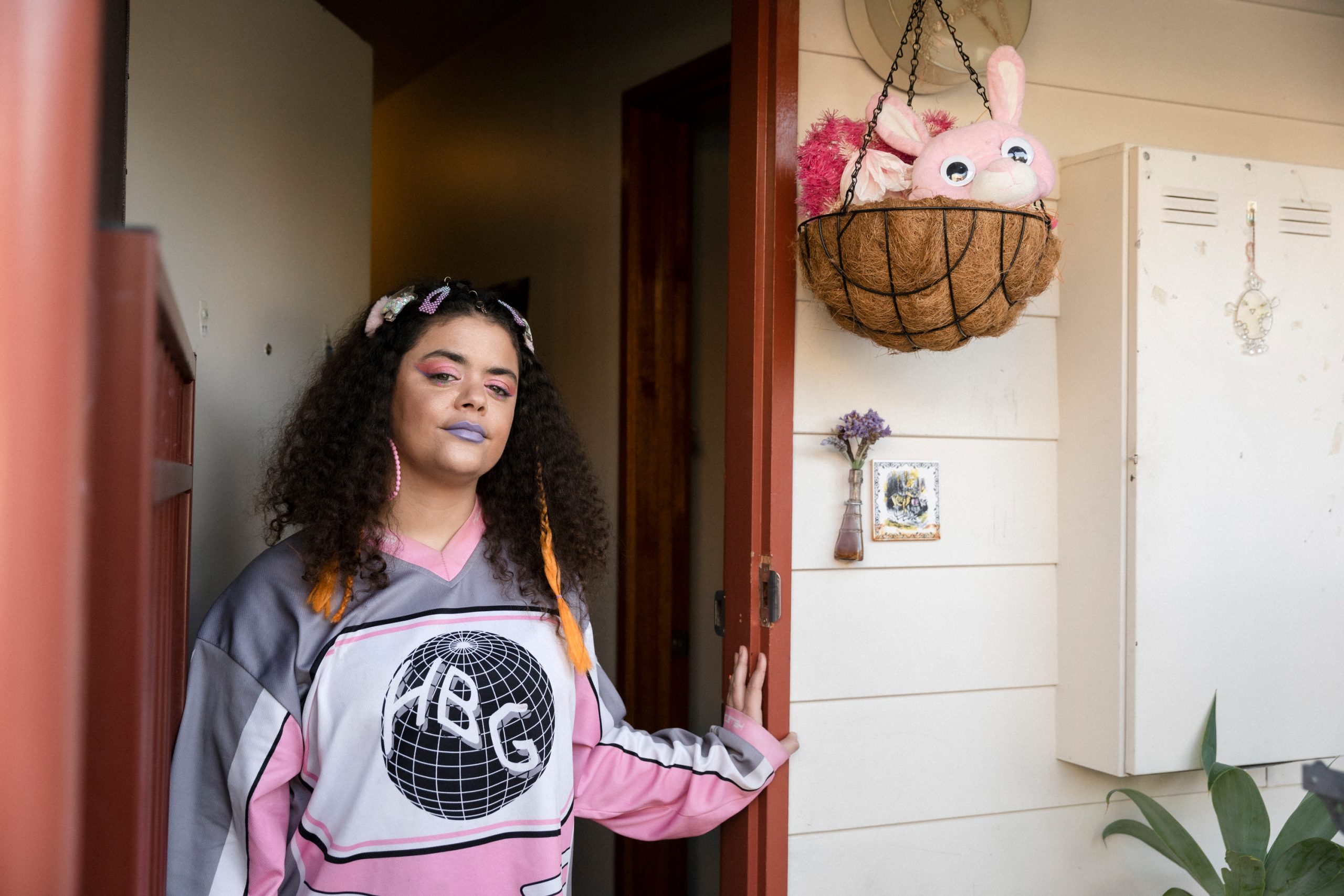
Melbourne’s stringent lockdowns last year affected all of us in different ways. In the space of time between the first and second series of lockdowns, and when it was safe to do so, photographer Bri Hammond visited residents in public housing in Collingwood and Richmond to hear how they were faring in isolation. Each person involved in the project has an individual story, and together these stories paint a picture of the diversity, vitality and community strength present in the buildings and homes.
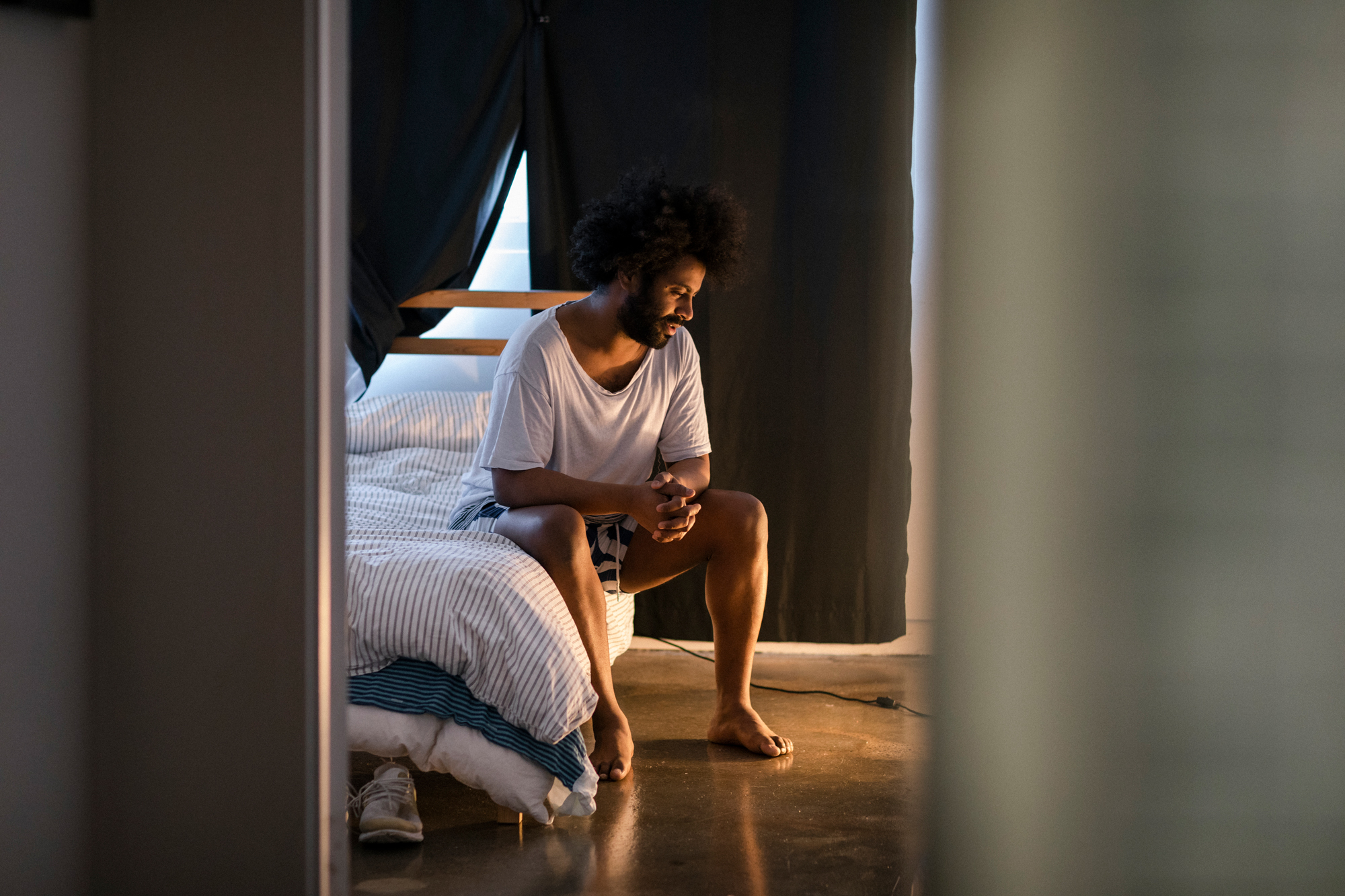
Joshua
“I’ve been living in this unit for about 20 years on and off. I was my dad’s primary carer here before he passed away. I grew up on the estate, from when I was about 14, so 22 years. I turn 36 in June. I run the Collingwood Underground Roller Disco, which is an all-inclusive event in the underground car park on the estate. I’m also working on a new event to celebrate Tavares Lane, which was named after my late father Antonio Tavares. It’s the first street to be named after someone of colour, the first non-colonial name and the first name of someone from public housing, which is cool. I’ve found isolation a bit difficult. I’m a professional musician, a singer, and all of my events have been cancelled. It’s been sort of nice to have a break from gigs, but I guess the break without anything else to do is like “oh, ok, we’re all in forced lockdown”. I guess we’re pretty lucky to be in Australia. I’ve been watching a lot of Netflix, playing video games. I have been working a little bit. I have been seeing some friends because we found it ridiculous that you can have a partner over but not a friend? So everyone who’s single is doomed to live this life of solitude? Isolation is the biggest killer of anyone, but now we’re saying it’s good for you to isolate? Crazy. Crazy!”
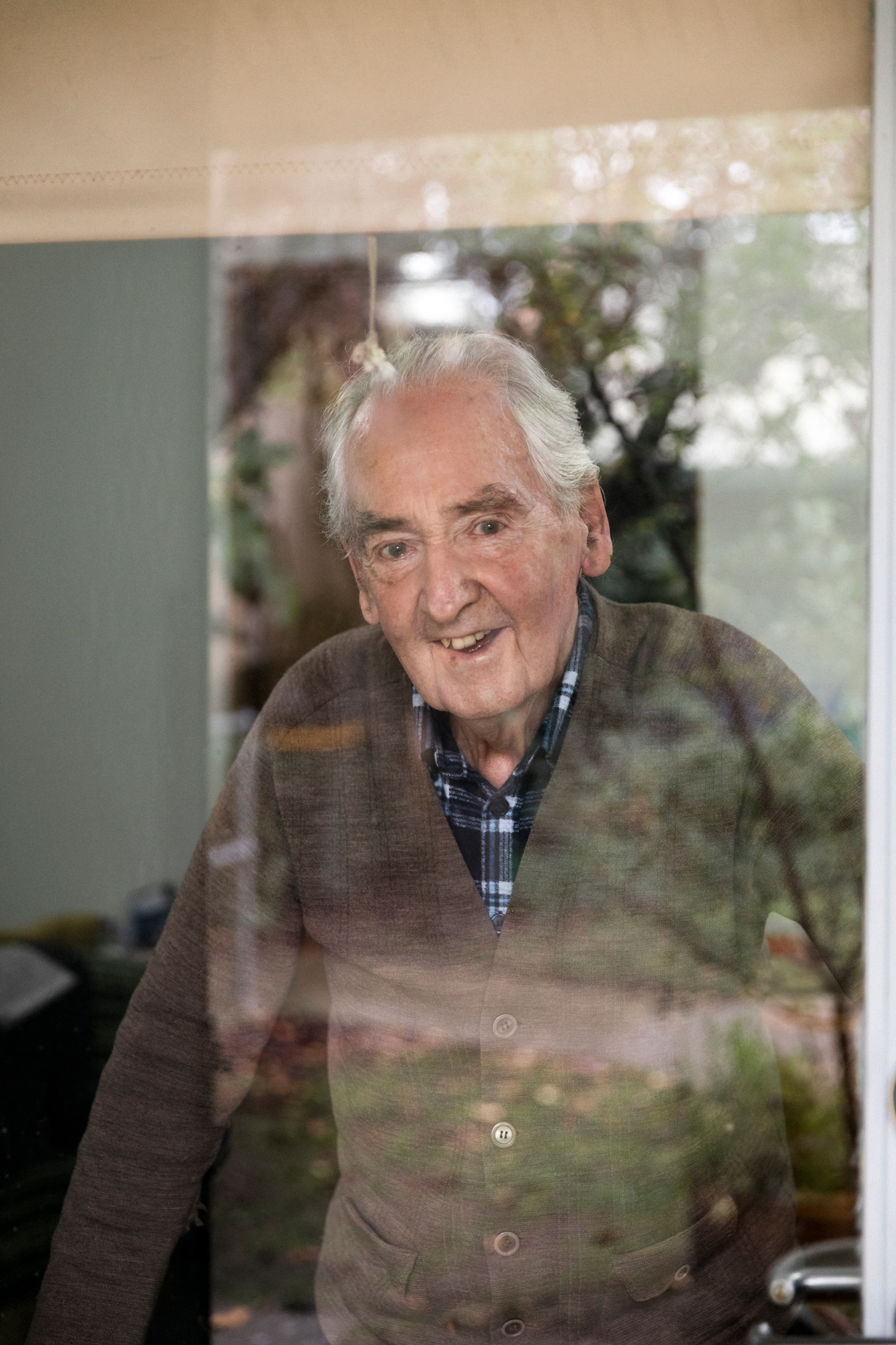
Peter
“Isolation for me was a double whammy because my spinal injury limits me in my ability to go out and meet people also. If it were not for the Meals on Wheels people, I would have very few people coming in to see me. I think the health workers are to be admired for all the wonderful work they’re doing. And for all the complaints we have for our politicians, compared to overseas I think they are doing a brilliant job. I’ve been switching off the news and watching as much comedy as I can instead. We’ve got to learn to laugh and enjoy the things we have rather than lament the things we don’t have.”
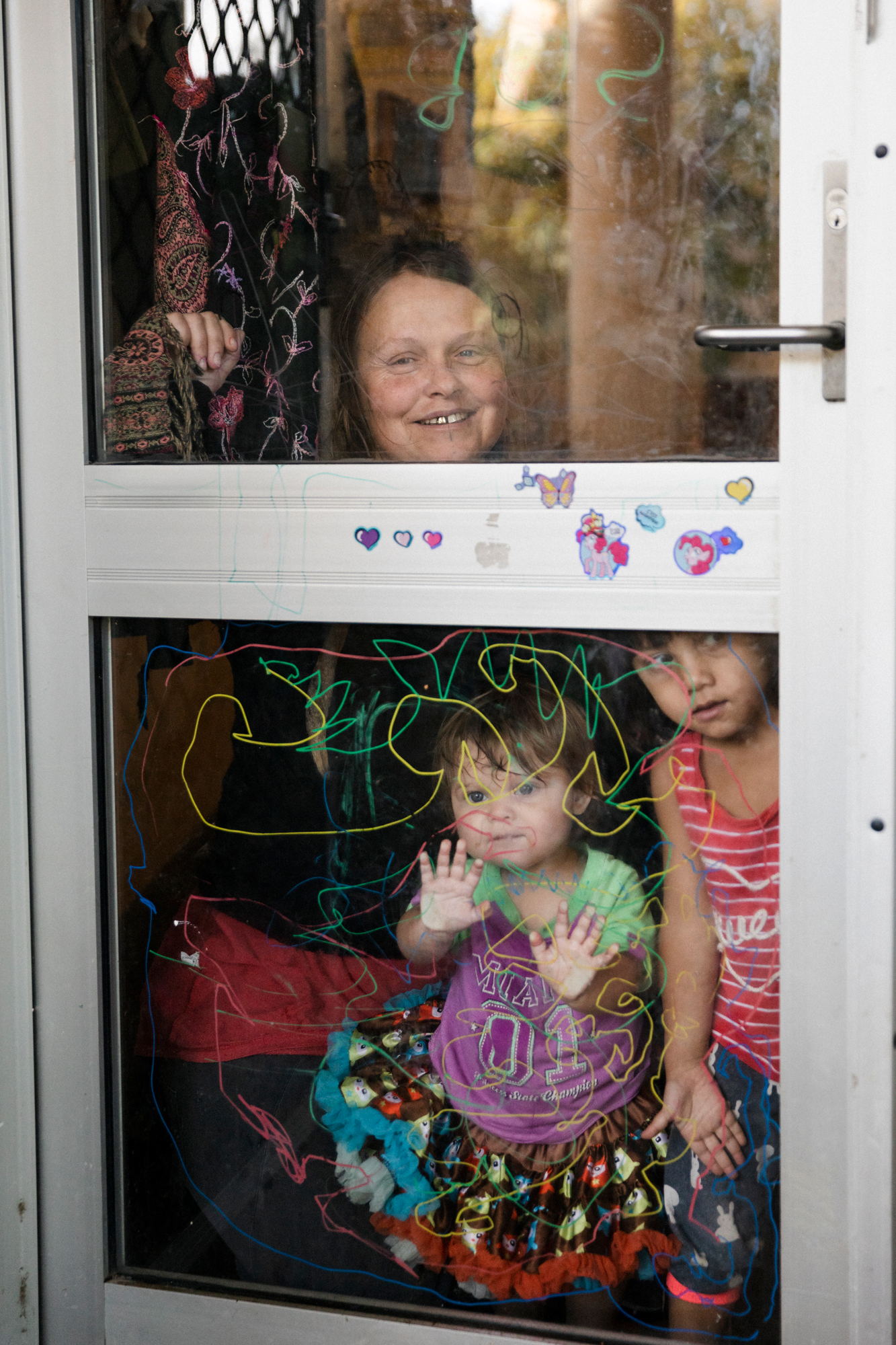
Izzy
“I’ve lived on the Collingwood housing estate now for three years. It’s actually the longest I think I’ve lived anywhere. Previous to that I did a lot of travelling around the world; I’ve had many adventures. I have a project called United Struggle Project, which is a music, arts and theatre based collective. We do a lot of social justice theatre, art and music. I’m also in a political hip-hop group called Combat Wombat. I have four kids, Amper Sonic, Nunei, Sambewa and Bassi. I’ve been a full-time Mum for 16 years, so the lockdown hasn’t been anything too out of the ordinary for me. I am really concerned about my friends overseas who are living in a lot poorer conditions and don’t have access to the medical and welfare that we have here. I guess that’s my biggest concern in the pandemic –how they’ll survive isolation when for a lot of people isolation means starvation. During this time for us in Australia, most of us are living quite comfortably, we’ve got access to community and support, but for refugees, people in detention and people in prison, life is a lot harder and they’re at a lot more risk than the rest of the population.”
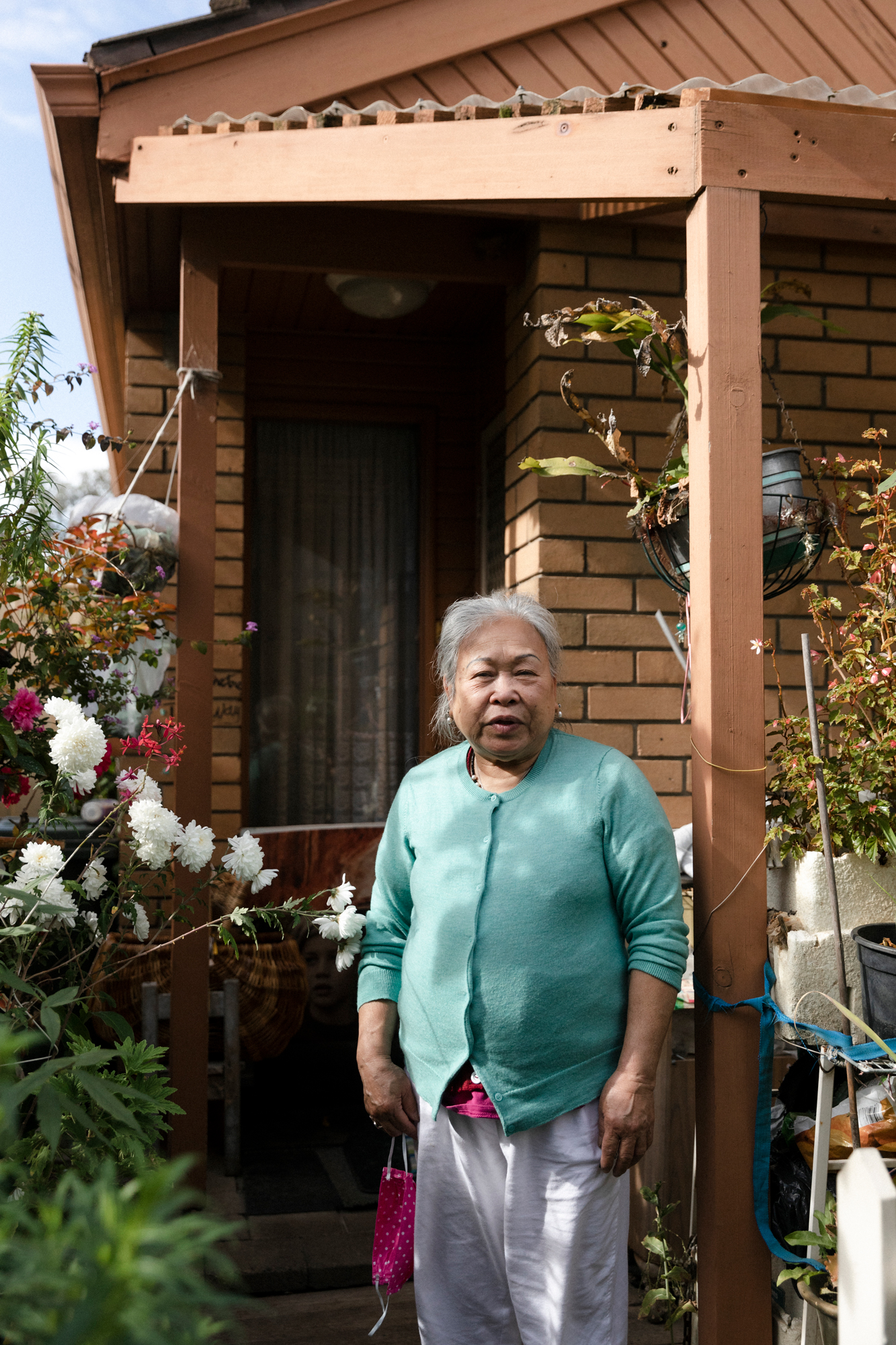
Nga
“I came to Australia as a refugee from Vietnam. After my family and I crossed the border from Vietnam to Thailand we spent seven months in a refugee camp before we finally came to Australia by boat in 1982. The lockdown period has reminded me of the hardships I faced when I first came to Australia. My daughters have advised me to stay at home and not go out. I’ve felt a bit lonely because I can’t go to the neighbourhood house to join the music activities, but I try to keep healthy and think positively.”
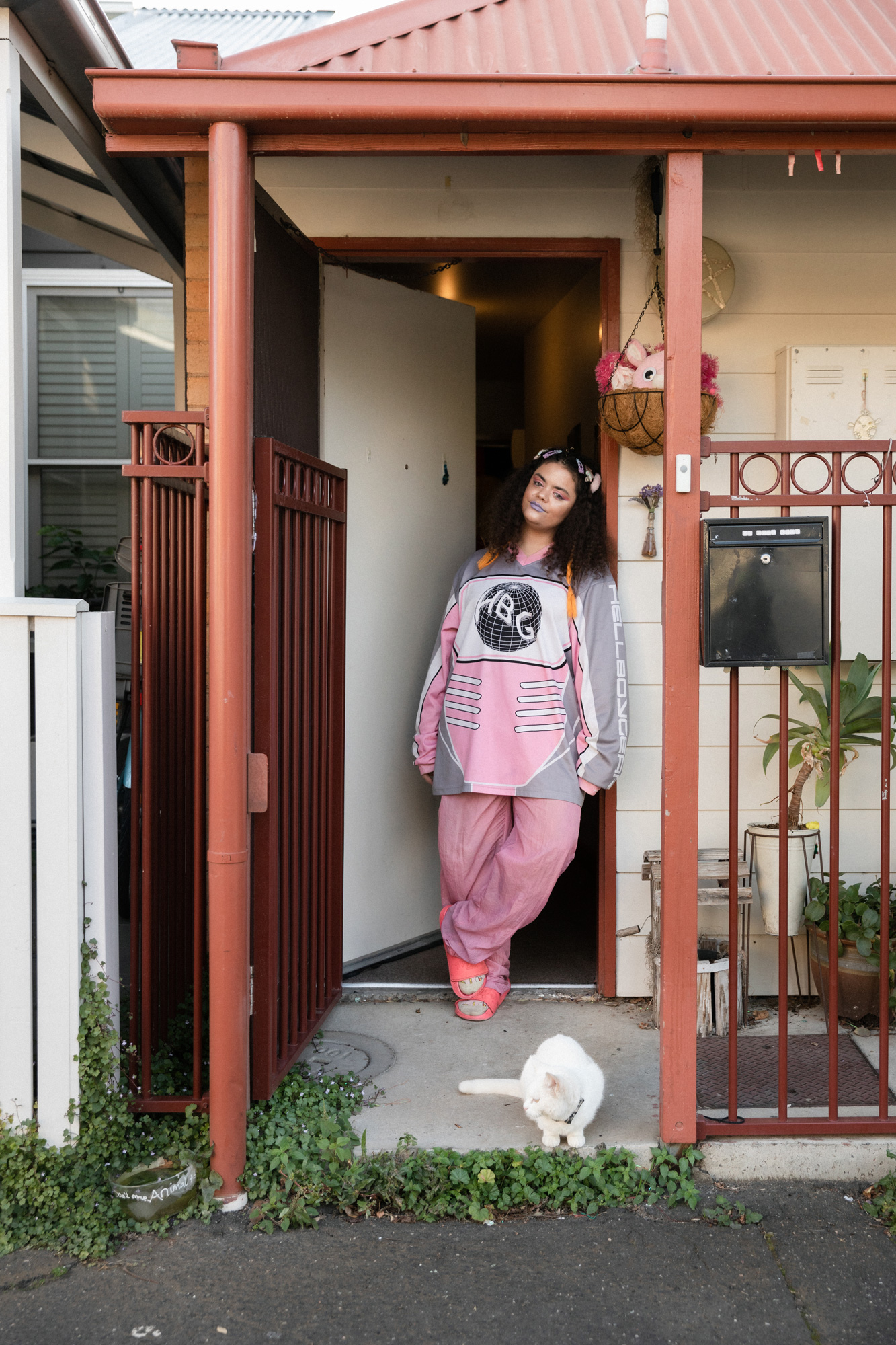
Mini
“I’ve been living here since 2016, so four years this year. I’m an artist and a rapper, and I do an event called High Rising Hip-Hop with the Collingwood Neighbourhood House down at the underground car park. I guess I saw a gap with a lot of hip-hop and open mic stuff, there was a place nearby but it was really white and just dudes. People would assume that I was just there to watch, I’d be queuing for ages and I’d just be pushed out of the way, and the one time I did get to go up people would just be real sleazy to me. There are so many amazing artists that I know that live on the estate, and so many amazing programs for young fellas to do hip-hop around here and I just thought it’d be cool to have something that bridged that gap. I feel like a lot of other spaces are really competitive and quite negative as well, there can be a lot of dissing culture and stuff like that. I heard about what a friend of mine was doing over in Footscray with positive rap battles and I thought that’d be a cool thing to incorporate. High Rising Hip-Hop is a space where people can mess up and practice doing freestyling and practice some of the stuff they might be writing or working on as well as come together with more established artists and adult MCs and perform together and make those connections so they can start getting paid gigs.”
Thank you to the Belgium Avenue Neighbourhood House and Collingwood Neighbourhood House for facilitating these conversations. This project was made possible with support from Yarra City Council. A selection of these stories will be displayed in a digital exhibition presented by Museums Victoria in early 2021 and acquired by Museums Victoria for the permanent collection as a documentation of this period in Melbourne’s history. This piece is part of Assemble Papers 13 Mind the Gap, published at the beginning of February 2021. Find the print version of Mind the Gap at cafes across Melbourne, or order a copy from our webshop and pay only postage costs.